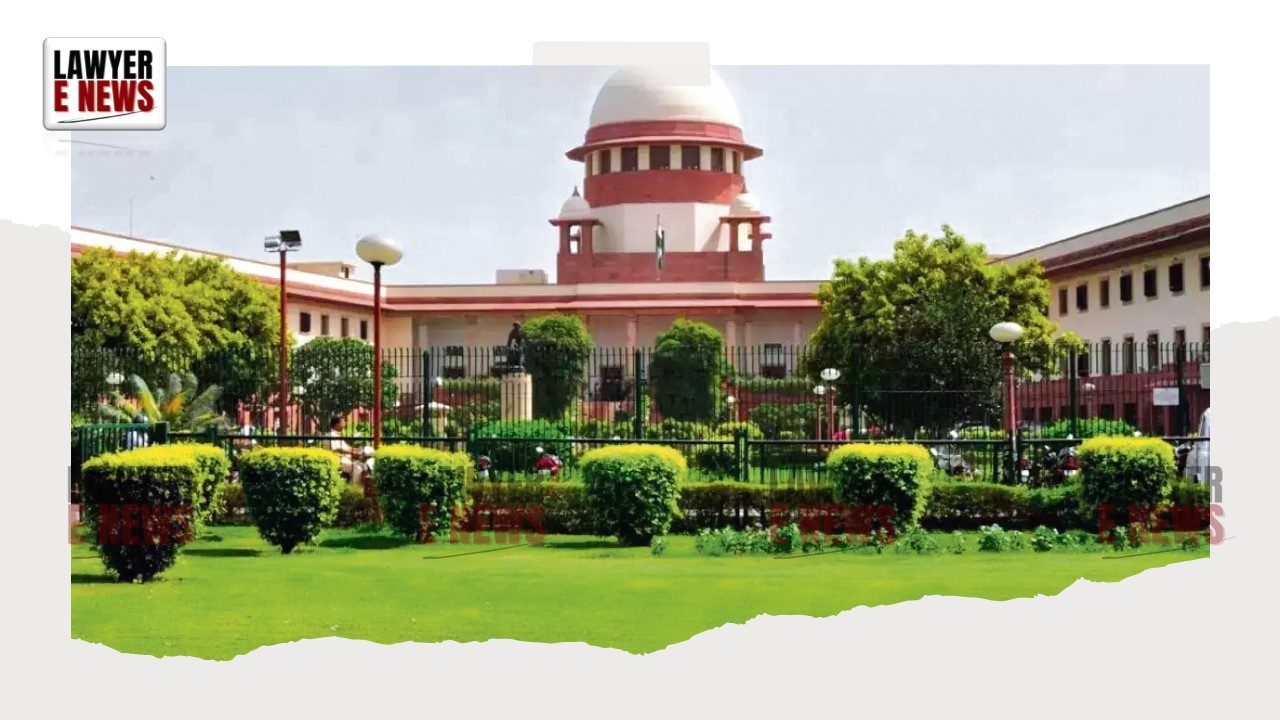-
by sayum
14 February 2026 2:22 PM



On November 18, 2024, the Supreme Court of India, in a landmark decision, ruled in favor of work-charge employees. The Court held that the period of service rendered by employees as work-charge staff prior to regularization must be counted for benefits under the Proficiency Step-Up Scheme, 1988, overturning the earlier decision of the Punjab and Haryana High Court.
The appellants were employees of the Punjab Irrigation Department whose services as work-charge employees had been regularized under the government’s 1996 policy. The Proficiency Step-Up Scheme, 1988 provides pay progression benefits to employees with extended years of service. However, the appellants were excluded from these benefits, even though similarly placed employees had received them.
Earlier, the Single Judge and Division Bench of the Punjab and Haryana High Court denied the appellants' claims, conflating the Proficiency Step-Up Scheme with the Assured Career Progression Scheme (ACPS), 1998, a separate policy. Aggrieved by this, the appellants approached the Supreme Court.
The Supreme Court was tasked with addressing the following key issue:
Should the appellants’ service as work-charge employees before regularization be counted for benefits under the Proficiency Step-Up Scheme, 1988?
Arguments Presented For the Appellants:
Violation of Equality (Article 14): Excluding the appellants from the scheme while extending it to others in similar circumstances constituted arbitrary discrimination.
Government Circulars and Policies: The 1996 policy explicitly provided that work-charge service would count toward pensionary and other benefits.
Judicial Precedents: Previous court rulings had consistently favored counting such service, including cases affirmed by the Supreme Court.
The State, represented by Shri Shadan Farasat, contended:
Benefits under the scheme were granted only where courts had specifically ordered.
Work-charge service prior to regularization could not automatically qualify unless directed by judicial intervention.
However, the State could not dispute the clarity of government circulars or the precedents cited by the appellants.
The Supreme Court provided a detailed analysis, highlighting critical flaws in the High Court’s approach:
Differential Treatment: The Court found that excluding the appellants from the benefits violated Article 14, as it amounted to arbitrary discrimination.
Misinterpretation of Schemes: The High Court wrongly equated the Proficiency Step-Up Scheme, 1988 with the ACPS, 1998, which had no bearing on the appellants’ claims.
Policy Consistency: The 1996 policy and subsequent circulars explicitly allowed for counting work-charge service for all consequential benefits, including those under the Proficiency Step-Up Scheme.
The Court observed:
“The High Court overlapped distinct schemes to deny relief to the appellants, a conclusion that is neither justifiable nor aligned with the government’s stated policy.”
The Court criticized the High Court’s disregard for past judgments, including decisions of the Supreme Court, which upheld the appellants’ eligibility for the scheme.
The Industrial Tribunal, Punjab, had earlier upheld the claims of similarly situated employees in related cases. The Supreme Court noted that the State had accepted the Tribunal’s decision in other instances but failed to extend the same benefits to the appellants.
The Supreme Court overturned the decisions of the Punjab and Haryana High Court and issued the following directives:
Counting Work-Charge Service: The appellants’ work-charge service must be counted as qualifying service under the Proficiency Step-Up Scheme, 1988.
Monetary Benefits: The State was directed to pay arrears within six months.
No Costs Awarded: The Court declined to impose costs on either party.
The appeals were allowed, with the judgment emphasizing equal treatment for similarly situated employees.
This ruling reinforces the principle of equality in public employment, setting a precedent for recognizing work-charge service in government benefit schemes. It sends a strong message against arbitrary exclusions, ensuring government policies are applied uniformly across eligible employees.
Decision Date: November 18, 2024
